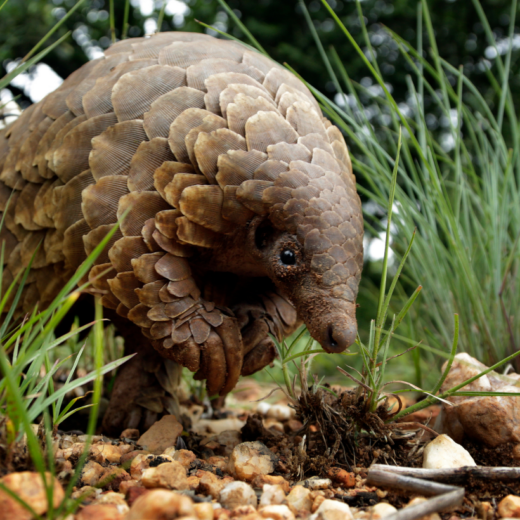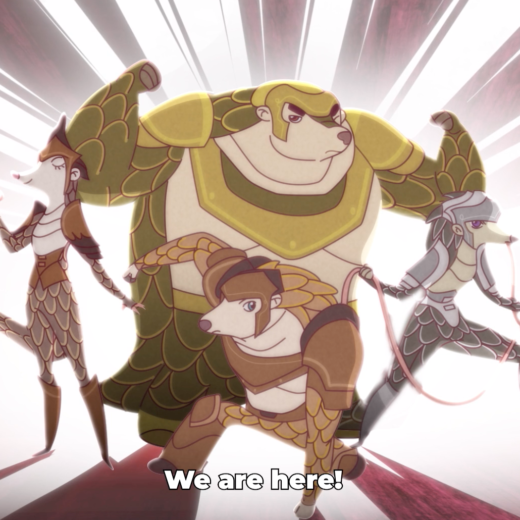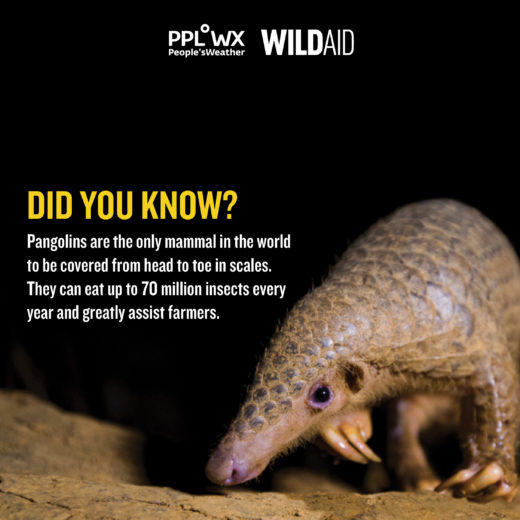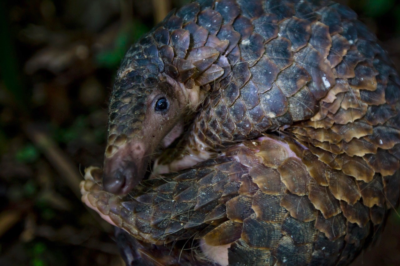
It’s been more than two years since the ban on global trade in all pangolin species went into effect. But it has not been enough. Roughly two million pangolins have since been poached.
This year’s World Pangolin Day, which falls on February 16, comes at a particularly troubling time. In the last two months, there have been four massive seizures of pangolin scales and meat, highlighting an increasingly devastating poaching crisis and the ongoing urgency of ending the illegal trade from Africa to Vietnam and China.
In Malaysia, authorities reportedly seized almost 30 tonnes of pangolins, including 1,800 boxes of frozen pangolins, 572 more frozen pangolins in six freezers, and 61 live pangolins found in cages.
In Hong Kong SAR, authorities seized the largest-ever shipment of pangolin scales – 8.3 tonnes believed to have come from about 13,800 endangered pangolins at an estimated street value of US$5.4 million.
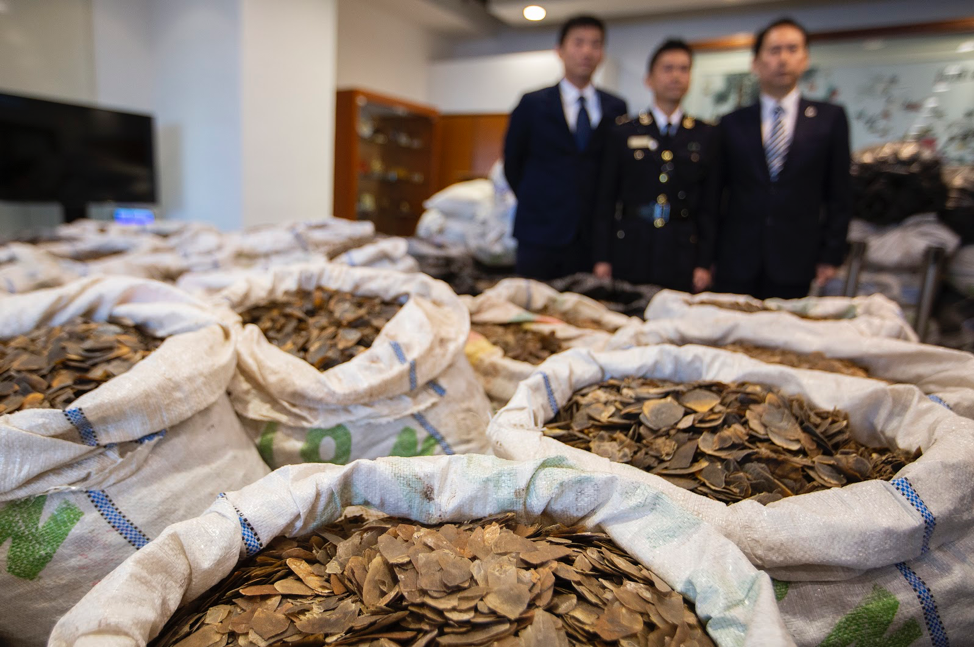

In Vietnam, nearly 1.4 tonnes of pangolin scales were found inside a container from Nigeria registered as carrying timber. And in Uganda, authorities seized thousands of pangolin scales being smuggled from neighboring South Sudan in one of the country’s largest seizures of illegal wildlife products.
These seizures highlight the importance of ending this devastating trade and strengthening enforcement. In Vietnam, authorities must utilize new, strengthened wildlife regulations for more effective arrests, prosecutions, and sentencing.
In China, sales of medicinal products containing pangolin scales are still allowed through designated hospitals. Produced by various medical manufacturing companies, ‘patented’ prescription products use scales as the main ingredient for capsules, ointments, and bandages.
Traditional medicine practitioners must find sustainable substitutes that maintain the efficacy of traditional medicine, but adapt to the changing environment. We know it can be done. At a recent conference in Hong Kong SAR, TCM experts stated that there are over 100 viable alternatives to the uses of pangolin scales already prescribed in traditional medicines.
“Were China to end the sale of pangolin products in the same way they did ivory, China could help save African and Asian pangolins,” said WildAid CEO Peter Knights. “Pangolins cannot be bred commercially and all populations are banned from trade so there is no possible legitimate source for ongoing sales.”
And finally, we must work together to reduce consumer demand for these products through awareness campaigns that put public pressure on those who consume pangolin scales and meat.
WildAid is Fighting Back
Thanks to our supporters, WildAid has been working since 2016 to save pangolins by reducing consumption and eliminating demand for their meat and scales in China and Vietnam – the two largest consuming nations.
By leveraging more than $60 million in pro-bono media for the pangolin campaign over the past two years WildAid and its partners have exposed some 800 million viewers in China and Vietnam to pangolin campaign messages featuring mega-star martial arts hero Jackie Chan, popular actress and model Angelababy, singer and actor Jay Chou, and Miss Universe Vietnam Pham Huong, among others. The ads have been distributed across dozens of TV networks and shown on over 160,000 video screens in subways, airports, and bust stops.
This World Pangolin Day, you can help by making a small contribution to these public awareness campaigns, spreading the word on social media and always saying no to pangolin products.
Stay in touch and get the latest WildAid updates.
SIGN UP
